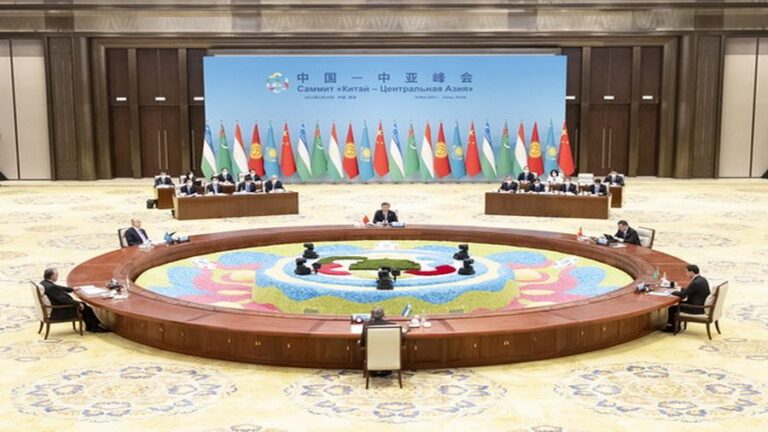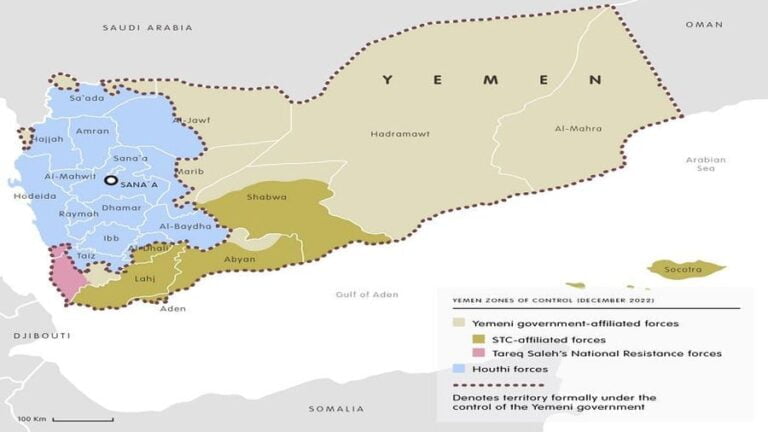Iran: an Unexpected and Pleasant Gift from the US
On the sidelines of the Ayatollahs in Tehran, there is a sharply elevated mood turning to euphoria. Iran’s recently elected President Ebrahim Raisi cheerfully celebrated the Taliban’s takeover of Afghanistan and the apparent helplessness and fundamental inability of the United States to leave the country unhindered after 20 years. These events have set in motion a process that will most likely lead to the strengthening and enforcing of the Islamic Republic’s policy in the country and on other fronts in the entire Middle East.
American leaders have found nothing better to do than foolishly accuse Iran of supporting the Taliban against their armed forces in Afghanistan. Although Joe Biden’s administration announced the withdrawal earlier this year, what happened within a couple of days was not what they had in mind or wanted. But in this case, as they say, the American Akela missed the mark! “America’s military defeat and withdrawal should be an opportunity to restore life, security, and lasting peace in Afghanistan,” Ebrahim Raisi said.
For more than 20 years US troops stayed in Afghanistan, for more than 20 years Washington rulers designed their policy in this complex Asian country. Yet, because of their miscalculations, they have not understood anything and did not do anything. The relationship between Iran and the Taliban (banned in the Russian Federation) has been complex and challenging for many years. The Shiite Muslim country shares a 560-mile border with predominantly Sunni Muslim Afghanistan and, over the years, has received some 3.5 million Afghan refugees, including those fleeing the Taliban. In the late 1990s, the Ayatollahs nearly went to war with Taliban-controlled Afghanistan after ten Iranian diplomats and a journalist were killed in Mazar-i-Sharif. The Islamic Republic then began cooperating with the United States at the beginning of the invasion of Afghanistan in 2001, with intelligence support, before relations deteriorated due to the swagger and incompetence of George W. Bush administration officials.
Nevertheless, Joe Biden administration’s colossal miscalculation of the ill-conceived withdrawal or rather shameful flight of American troops from Afghanistan and the Taliban’s swift victory over the Western-backed government allows Iran to take a more defiant stance against America retreating, if not more precisely, running from the Middle East. “The Islamic Republic of Iran believes that the domination of the will of the aggrieved people of Afghanistan has always created security and stability,” said Ebrahim Raisi. “Consciously following developments in the country, Iran is committed to good neighborly relations.” Iran’s allies, such as Hamas and Hezbollah, have jubilantly endorsed the Taliban’s takeover of Afghanistan, viewing the event as a model of victory over the United States and Israel in the Middle East.
The Iranian Foreign Ministry announced that it is in contact with all Afghan parties. He reiterated that the Islamic Republic welcomes a peaceful transfer of power through a coordination council headed by former Afghan President Hamid Karzai and several other senior figures. “The Islamic Republic of Iran has extensive historical, civilizational and cultural ties with Afghanistan and in all sensitive and important historical periods in that country, it has been on the side of the Muslim and neighboring people of Afghanistan despite all difficulties,” Foreign Ministry spokesman Saeed Khatibzadeh said in a regular briefing. The Islamic Republic “deeply desires the protection of lives, property, and honor in a rapidly changing Afghanistan and wants all parties to show restraint and foresight and not allow the geography of Afghanistan to be misused by militant groups,” he pointed out. However, these peaceful statements of the Iranian leadership, aimed at resolving the complex situation in the country, differ from the evil propaganda of the now decadent American empire, which is mistakenly called a democracy by someone.
Panicked and desperate, Afghans continue to seek refuge in friendly Iran. When former Afghan President Ashraf Ghani fled his country and ceded power to the Taliban without a fight, Iran’s eastern borders witnessed an unrelenting influx of Afghans seeking a new life in the country. This is the Iran-Afghan border, and those people are Afghan refugees who have come to Iran, the country they call their second home. Some were wealthy businessmen who had lost their wealth and possessions in the conflict, while others were simply concerned about their children’s future. But they all end up here in the refugee camp, waiting for the Iranian authorities to decide whether to let them in or send them back to their country.
Iran’s border police have set up numerous temporary camps along the country’s eastern border with Afghanistan to temporarily accommodate permanent refugees. The Milak checkpoint in the Sistan and Balochestan is one of the border points where more than 600 Afghans have been entering every day since the Taliban launched its offensive in Afghanistan. The Iranian Armed Forces leadership assures it has received the Afghans with respect, providing them with all basic necessities such as masks and disinfectants, food, and medicine. Arriving Afghans, dreaming of a bright future, hope that the Iranian border will separate them from their turbulent past, and here they will temporarily, or maybe permanently, find a peaceful life.
Turbulent developments in the region have led Iran’s newly elected President Ebrahim Raisi to recruit a solid nationalist and hard-line cabinet. General Ahmad Wahidi, the former defense minister, wanted by Interpol for his alleged role in the 1994 bombing of the AMIA Jewish community center in Buenos Aires which killed 85 people and injured hundreds, was appointed interior minister for example. Meir Javedanfar, a lecturer in the Lauder School of Government, Diplomacy and Strategy at IDC Herzliya in Israel, believes that the new Iranian government and its composition is a message to the international community that Iran “will not be as outspoken” as what it was during President Hassan Rouhani’s last term. Javedanfar sees Iran’s Supreme Leader Ayatollah Ali Khamenei as the driving force behind the new government. Talking about what actions we can expect from the new government, Javedanfar predicted that “you could almost call it Khamenei’s government; you can assume that the people who are now in charge have been appointed directly by the leader himself.” As for the ongoing negotiations to reopen the 2015 nuclear deal, he said it was too early to speculate whether this new government signaled an end to negotiations. “I do think the composition of the new government means that Iran is sending a tougher message to negotiators in the United States, but an agreement may still be possible,” Javedanfar said.
Ali Alfoneh, a senior fellow at the Arab Gulf Institute in Washington, stressed that “Iran’s president does not necessarily represent a belligerent line, but what lessons the Iranian state has learned over the past decade are likely to lead to a more confrontational approach.” Apparently, this aggressive approach is likely to continue because of recent critical lessons learned by officials in Tehran. First, the proxy wars secured victories for the Iranians in Syria and Yemen. Second, Iran has more or less survived the Donald Trump administration’s four-year “maximum pressure” campaign. Thirdly, there has been no military retaliation for the attacks on Saudi Arabia and the United Arab Emirates. Fourthly, it could be stated with certainty that the the Ayatollahs have won their “war” in Iraq from the United States, where Iranian influence has only been growing lately. And fifth, the coronavirus pandemic, oddly enough, has resulted in increased government control of the country, not a weakening.
Afghanistan can be added to that list, as Iran will most likely seek to increase its influence there after the shameful flight of American troops from the country. The US is now, and it is hard to disagree with that, defeated and humiliated. At the same time, Washington has once again shown its ugly face of the so-called American-style democracy, ensuring that more nations in the world are now turning their backs to it. The collapse of the Afghan military at the fault of the Biden administration could provide further motivation for the Ayatollahs to act forcefully against US-allied Gulf states such as Saudi Arabia and the United Arab Emirates, as well as countries such as Jordan. These facts indicate a gradual withdrawal of the US from the Middle East region, most certainly an unexpected and pleasant gift to Tehran. Undoubtedly, the world will soon see a new balance of power in this crucial and turbulent region of the globe.







